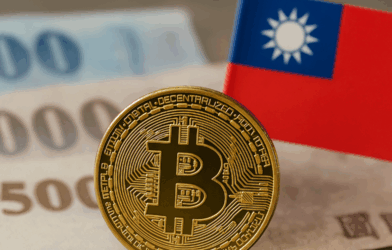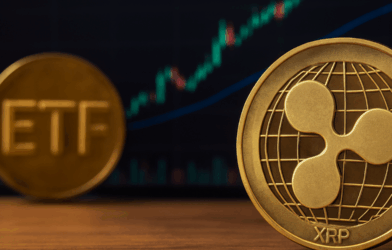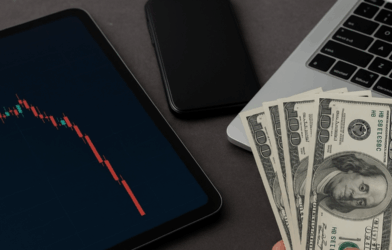A major development has taken place in Japan’s financial and crypto ecosystem. SoftBank’s PayPay — one of Japan’s leading digital payment platforms — has acquired a 40% stake in Binance Japan, the local arm of the world’s largest cryptocurrency exchange. The deal marks a defining step in bridging everyday digital payments with the fast-growing world of cryptocurrencies, signaling that mainstream adoption is no longer a distant dream but an ongoing transformation.
The Core of the Deal
While the financial details of the acquisition have not been publicly disclosed, the strategic intention is clear — to integrate PayPay’s massive user base and payment infrastructure with Binance’s crypto trading services. Through this partnership, PayPay users in Japan will soon be able to purchase cryptocurrencies directly using PayPay Money and even withdraw funds from Binance Japan back into their PayPay wallets.
This move essentially dissolves the line between traditional digital payments and crypto transactions. It also brings Binance closer to compliance with Japan’s strict financial regulations, given that PayPay already operates under the nation’s well-regulated payment frameworks.
A Strategic Synergy
1. The Power of Integration
For Binance, which has faced challenges in several countries over regulatory compliance, this collaboration provides something priceless — trust and access. PayPay is a household name in Japan, supported by the powerful SoftBank ecosystem. Its integration with Binance ensures legitimacy and ease of access for millions of users who may have hesitated to try crypto before.
For PayPay and SoftBank, the benefit lies in diversification. The payment company has already captured a dominant share in Japan’s cashless payment market. By stepping into the crypto world, PayPay is positioning itself not only as a payment service but also as a multi-asset financial ecosystem — offering everything from fiat payments to crypto trading.
2. A Re-Entry with Confidence
Binance’s journey in Japan hasn’t been straightforward. After initial regulatory hurdles in 2018, the exchange had to pause direct operations in the country. But in 2022, Binance made a careful comeback by acquiring Sakura Exchange BitCoin, a licensed Japanese exchange. This gave Binance a compliant pathway to re-establish itself in Japan.
Now, with PayPay holding a significant stake, Binance Japan gains deeper credibility and a local face that aligns with Japanese consumer trust and financial standards.
3. Anticipating Future Regulations
Japan’s Financial Services Agency (FSA) has been one of the world’s most proactive regulators in setting clear crypto rules. However, new legislation around the treatment of digital assets as financial instruments is expected to evolve by 2026. By moving early, both Binance and PayPay are preparing to be ahead of the curve — building infrastructure and consumer experience before new entrants rush in once the rules stabilize.
The Market Implications
A. Boost to Crypto Adoption
The most immediate impact of this deal will be on adoption. When a widely used digital wallet like PayPay integrates crypto functionality, the barrier for average consumers drops dramatically. Millions of people who already use PayPay for daily shopping, transport, and utilities will soon be able to invest in or trade cryptocurrencies without opening a new app or going through complex onboarding.
B. Competitive Pressure
The move could ignite a new wave of competition in Japan’s fintech and crypto sectors. Local exchanges like bitFlyer and Coincheck, as well as banks experimenting with digital currencies, may have to innovate faster to stay relevant. Traditional financial institutions could also see this as a wake-up call to collaborate with or acquire crypto companies.
C. Regulatory Confidence
Another crucial impact is confidence. The partnership sends a clear message that crypto is moving toward regulation-friendly mainstream adoption. When a major SoftBank subsidiary openly invests in a crypto exchange, it signals to both the government and investors that digital assets are no longer speculative outsiders but part of the evolving financial system.
The Broader Picture: Finance Meets Future
SoftBank has long been known for identifying transformative technology trends early. Its Vision Fund has invested in everything from AI to robotics to digital payments. Now, this stake in Binance Japan represents SoftBank’s acknowledgment that crypto is the next frontier of financial innovation.
For Binance, this is part of a global trend of partnering with domestic entities in regulated markets to gain smoother access and compliance — a strategy already seen in regions like Europe and Southeast Asia.
For Japan, the collaboration re-positions the country as a leading hub for responsible crypto innovation in Asia. After years of cautious regulation following the Mt. Gox and Coincheck incidents, Japan’s crypto sector is maturing, and deals like this highlight a more confident phase of institutional participation.
Challenges That Lie Ahead
Despite the optimism, several challenges remain:
- Integration Complexity: Linking payment and crypto systems involves immense technical and regulatory synchronization — especially around KYC, AML, and fund segregation.
- Consumer Education: Many users still see crypto as volatile or risky. PayPay and Binance will have to invest in education and communication to ensure a smooth transition.
- Market Volatility: Even with strong regulation, crypto markets can swing widely. Ensuring users don’t perceive crypto as a replacement for stable payment balances will be crucial.
- Regulatory Shifts: If Japan introduces new crypto taxation or capital control policies, it could influence how integrated such ecosystems can become.
What Comes Next
- Product Launch: The first phase will likely involve enabling simple crypto purchases through PayPay wallets.
- Cross-Platform Services: Future versions could include staking, NFTs, or crypto-based rewards for users.
- Global Expansion: If this model succeeds, it could serve as a blueprint for other markets, especially in Asia where digital payments are thriving.
- IPO Ambitions: With PayPay already preparing for a potential US listing, this partnership strengthens its narrative as a next-generation fintech leader combining fiat and blockchain.
The Takeaway
The PayPay–Binance Japan deal isn’t just about one company buying another. It symbolizes a larger shift in global finance — the fusion of regulated payment systems with decentralized digital assets. Japan’s history with fintech regulation makes it an ideal testing ground for what could become the new normal worldwide: an ecosystem where your everyday wallet can hold both yen and Bitcoin side by side.
As the digital economy continues to evolve, this alliance could become one of those historic pivots that defined how nations embraced the future of money — not through competition between traditional finance and crypto, but through collaboration.











